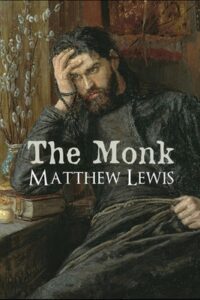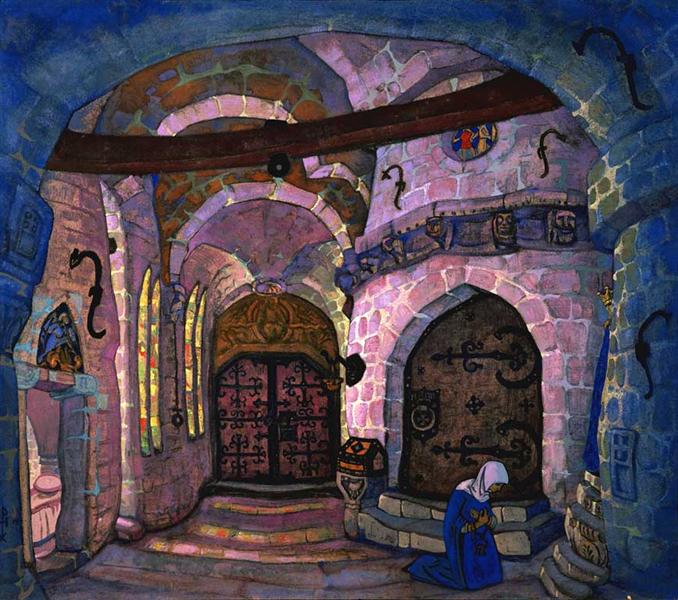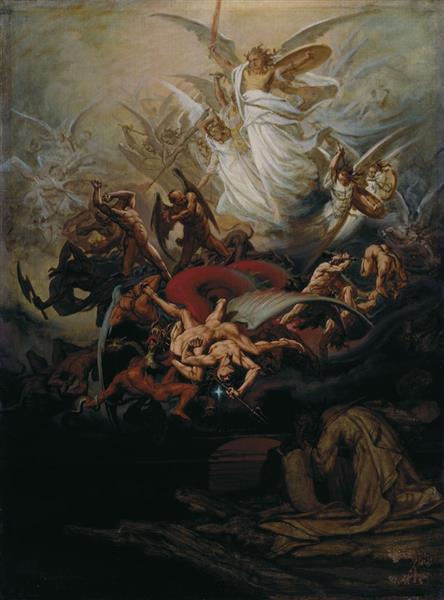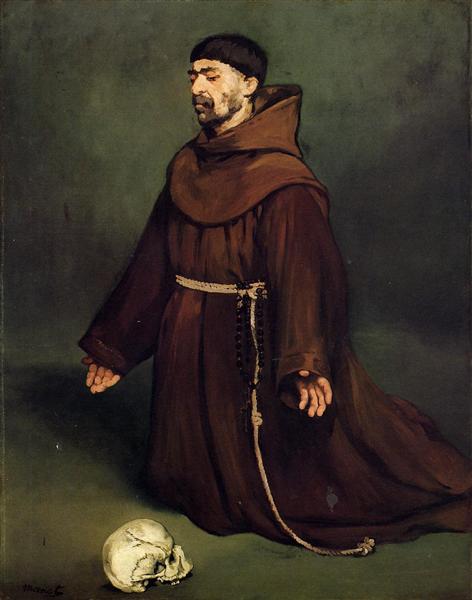 “Scarcely had the abbey-bell tolled for five minutes, and already was the church of the Capuchins thronged with auditors.”
“Scarcely had the abbey-bell tolled for five minutes, and already was the church of the Capuchins thronged with auditors.”
Wow! What an appalling book! I had expected something scary but I never expected something quite so perverted. It’s melodramatic and sensational and, while the writing is good, the plot is not necessarily subtle or nuanced. At first, it reminded me of The Mysteries of Udolpho but I soon realized that it was much worse, much, much darker.
Set in Spain during the Inquisition, Lewis’ story follows three main storylines with a cast of intertwining characters.
Ambrosio, a Capuchin monk, is celebrated in Madrid wherever he goes for his piousness, sermons and overall good example. Rosario, a novitiate monk, follows him everywhere and pledges his undying friendship, but lo! we find that Rosario is actually Mathilda, a woman. Not only is Mathilda comely, she is very persuasive and Ambrosio, in spite of an initial weak resistance, falls into a passionate sexual relationship with her. With each encounter with the evil Mathilda, his passions grow until he tires of her and looks to slake his passions on others unsuspecting young damsels by using rape, which eventually escalates to murder to cover up his crimes.
Through the account of Raymond, the Marquis de Medina, the reader learns of how he rescues a German Baroness from a trove of bandits and is invited to her castle Lindberg in Germany where he meets and falls in love with her niece, Agnes. He also learns of a legend of the Bleeding Nun. Unfortunately, the baroness has developed an untimely and crazy passion for Raymond and when she learns that his love is given to Agnes, through devious means she arranges to have her sent to the convent of St. Clare.
Yet Agnes has a brother, Lorenzo de Medina, who sees Antonia Dalfa outside of a church service and falls in love with her. Antonia lives with her mother, Elvira, and develops an admiration and trust for Ambrosio and his superior religious rhetoric. Yet soon her heart is given to Lorenzo with a pure and innocent love.
What follows is a bizarrely twisted melodrama which includes rape, incest and murder in great amounts. It’s shocking, horrifying and abhorrent but strangely, there is a rather important lesson within this quagmire of depravity. This cautionary tale shows us how one sin will very often lead to another and the next sin will be even greater than the one before. Once you let evil into your heart, it tends to take root and flourish. The story also emphasized how important it is to tell the truth, to try to never lie. After the first sin of Ambrosio, if only he had confessed and told the truth, his life and actions would have taken a different path, but instead they led straight to the Evil One.
On the publishing of this novel in 1796, the author drew great criticism for the shocking content and behaviour of his characters, yet even so, the novel was widely popular. Matthew Lewis wrote this when he was 20 years old, with perhaps a young adult’s drama and hormones. It is said that he regretted his work later in life, especially the negative effect on his family, and he sanitized later editions. Yet the stain never really left Lewis and he was even decried posthumously with these scathing words:
“He had devoted the first fruits of his mind to the propagation of evil, and the whole long harvest was burnt up … There is a moral in the life of this man … He was a reckless defiler of the public mind; a profligate, he cared not how many were to be undone when he drew back the curtain of his profligacy; he had infected his reason with the insolent belief that the power to corrupt made the right, and that conscience might be laughed, so long as he could evade law. The Monk was an eloquent evil; but the man who compounded it knew in his soul that he was compounding poison for the multitude, and in that knowledge he sent it into the world”.
Not a desired eulogy for anyone and one wonders if Lewis wished that he’d never written The Monk.





What an appalling book! I had expected something scary but I never expected something quite so perverted
Couldn’t have put it better myself. I was shocked when I read this myself back in ’13. I gave it 1star and only wrote a couple of sentences. I suspect that I didn’t want to give it more attention. Definitely not something I’d re-read just to write a fuller review.
ps,
for some reason, I can’t “like” this post. A quick pop up happens then disappears when I click the “like” button.
Hey Bookstooge! I hope you and your wife are doing well! Yes, I don’t think the book was worth it, just to read about a lesson on sin and its consequences. It definitely would not be a re-read. Don’t worry about the like button. I’m strangely up-to-date with my WordPress updates so I don’t know what’s going on. But I’m the type of person who rarely even notices “likes”. ☺️ But thanks for the thought!
I’ve sort of been curious about this, but it sounds like I may not need to read it! I also wonder how much of it is due to anti-Catholic prejudice in England at the time.
Yes, it’s not necessary to read it. I don’t know what he was trying to do but it sounds like he offended alot of people.